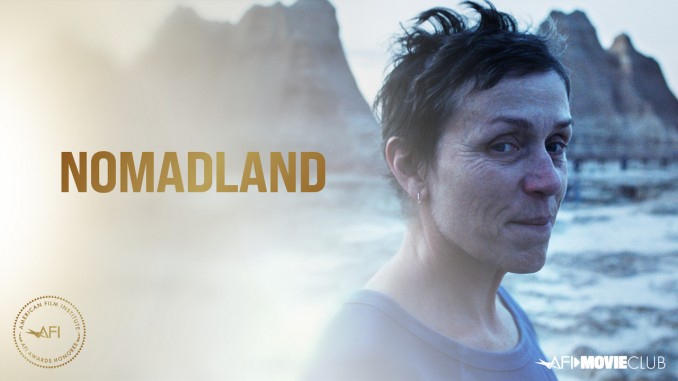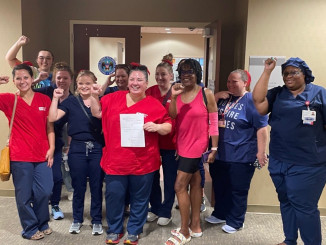
On February 19th, Hulu released a fantastic new film, now available for streaming, called Nomadland. This film is based on a non-fiction book of the same title, written by journalist Jessica Bruder about the millions of Americans who are modern-day nomads, living out of remolded cars, vans, or RVs. We recommend the movie, and if you have the time and a library card, we recommend the book even more.
As many of us know, life in this system is very precarious. One medical bill can eat up whatever savings you have, and a layoff or pension cut can mean complete destabilization. Millions live paycheck to paycheck in jobs that don’t provide benefits like retirement or pensions. Many end up with nothing to live from, with no money for rent or other expenses, leading some to turn to a nomadic lifestyle. Today it is estimated that around three million people live like Fern in Nomadland (played by Frances McDormand): out of their vehicles, traveling the country, searching for work and a place to park. In the book, Bruder describes,
“There have always been itinerants, drifters, hobos, restless souls. But now, in the second millennium, a new kind of wandering tribe is emerging. People who never imagined being nomads are hitting the road. They’re giving up traditional houses and apartments to live in what some call ‘wheel estate’ — vans, secondhand RVs, school buses, pickup campers, travel trailers, and plain old sedans. They are driving away from impossible choices… Many took to the road after their savings were obliterated by the Great Recession [that began in 2008]. To keep their gas tanks and bellies full, they work long hours at hard, physical jobs. In a time of flat wages and rising housing costs, they have unshackled themselves from rent and mortgages as a way to get by. They are surviving America.”
Surviving America, or maybe barely surviving, is exactly what these people are doing. And many of us are just one incident away from joining them. Pre-pandemic, 40% of Americans said they couldn’t cover an unexpected $400 bill without selling something or going into debt. Since the pandemic hit, unemployment rates have been higher than the Great Depression, and many businesses are passing the cost of the economic crisis on to their workers by cutting pay, hours, and benefits. So we can only imagine how much worse it has gotten.
The film tells the story covered in the book Nomadland through Fern, who lives in a small converted van. Through Fern’s eyes the film covers a wide range of aspects of nomadic life, from using a bucket as a toilet, to being hassled by people who don’t want you parking in their lot, to joyful gatherings with other drifters, and the ever present danger of being assaulted. While the life can be very lonely, there are communities organized over the internet and phone lines that bring people together — whether to party, or help each other with common problems like keeping warm when temperatures drop, or figuring out which Walmarts allow overnight parking.
Both the book and movie show the various ways people figure out how to get by or where to find work, and which businesses exploit this need for work. For example, some will get a free parking spot in exchange for working at a public park or campsite. While these jobs’ wages vary, some are essentially modern slave labor, with the only compensation being room and board. One of the biggest exploiters of these modern-day nomads is Amazon.
During peak season, Amazon knowingly targets this transient population, offering temporary work and parking sites to those willing to take the meager pay. And while in many jobs age discrimination favors youth, Amazon recruiters have said they prefer the elderly roamers because even though they often don’t work as fast as younger people, they tend to have a stronger work ethic that makes them more dependable during the back breaking shifts.
People who live this way have a range of experiences. Some end up a bit better off and can even buy a small plot of land to build a tiny home on. Others end up living out of a van or RV built for sleeping while some are just struggling to survive in a small converted car. Many view the life as an escape from the monotony of constant exploitation that this society forces us into while others lament not having a more stable lifestyle but have no other choice.
And isn’t that what we are all forced to do these days? Figure out the best we can do to cope while living paycheck to paycheck, hoping we don’t find ourselves drained of our savings, out of work, and unable to get by. Bruder has called these nomads an unseen group in society, but this book and film are a chance to see them. This system throws people away, and blames them in the process. It is forcing people to survive out of their cars in droves, scraping together pennies working back breaking jobs until they die.
So watch the film, imagine living the life of a nomad for an hour and fifty minutes, or give it a little more time and read the book. And then let’s get to fighting for a better world that doesn’t throw people away.




